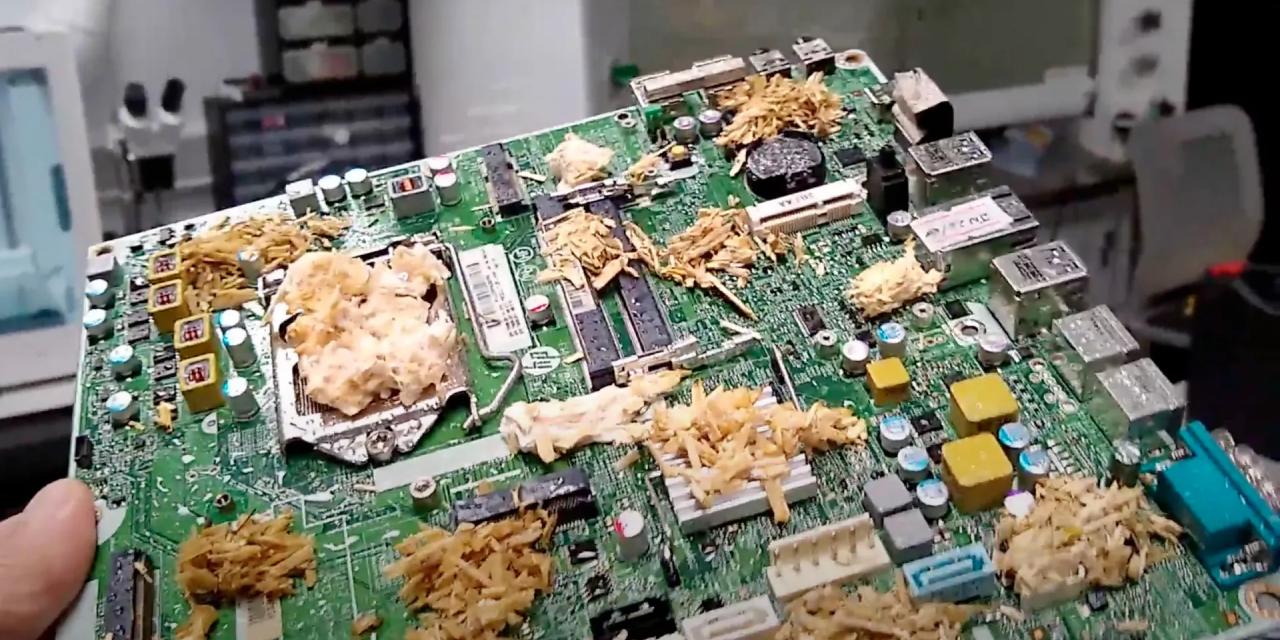
Well we weren’t expecting to write about mushroom motherboards today, but here we are. Researchers from the Unconventional Computing Laboratory (UCL) in the University of the West of England (UWE Bristol) have shown off their labours in the form of a motherboard that uses mushrooms instead of more conventional PC parts.
The motherboard, which looks upsettingly like someone dumped a load of potato chips into a PC tower and then glued them on, actually works in the same way a more normal motherboard would, though it’s unlikely to rival more usual builds any time soon. At the moment, the studies are based around feasibility and proving the concept will work rather than whether it’s a viable alternative, but with this as a first step, it’s clear a future with living electronics is entirely possible, if a little unsettling.
The concept of "wetware" -- using living creatures as hardware -- in this way is only possible thanks to the way that fungi work. The mushrooms that we all know are actually just the fruit of a much larger organism. Known as the "mycelium", this much larger organism lives underground and links a large number of mushrooms as part of something pithily termed the "wood wide web". In the UCL’s unconventional build, the motherboard functions as a mycelium of sorts, and allows for communication between the different mushroom components.
Speaking to Popular Science, professor Andrew Adamatzk said: "Right now it’s just feasibility studies. We’re just demonstrating that it’s possible to implement computation, and it’s possible to implement basic logical circuits and basic electronic circuits with mycelium. In the future, we can grow more advanced mycelium computers and control devices".
So does this mean your next computer may be a living being? Not unless you wait a really long time to upgrade -- this technology is going to be nowhere near ready for mass acceptance. However, this sort of wetware has some extremely attractive bonuses associated with it, and ones that humanity of the future may be willing to look past the slightly squeamish nature of squishy computers to embrace.








